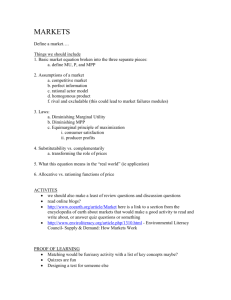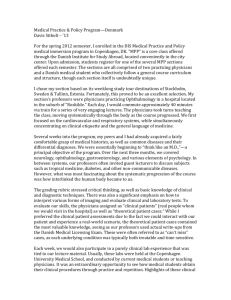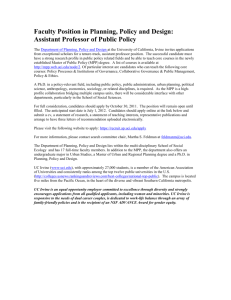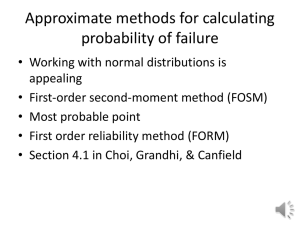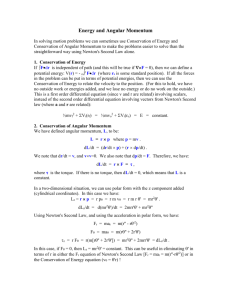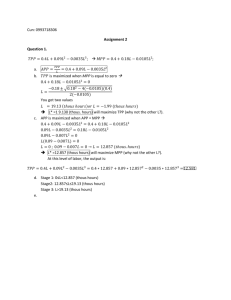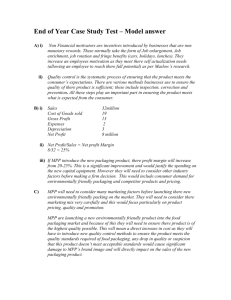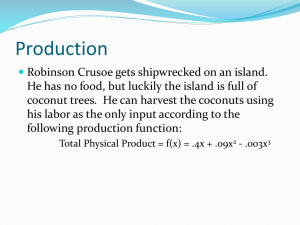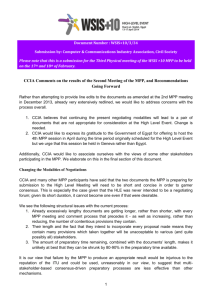mpp
advertisement
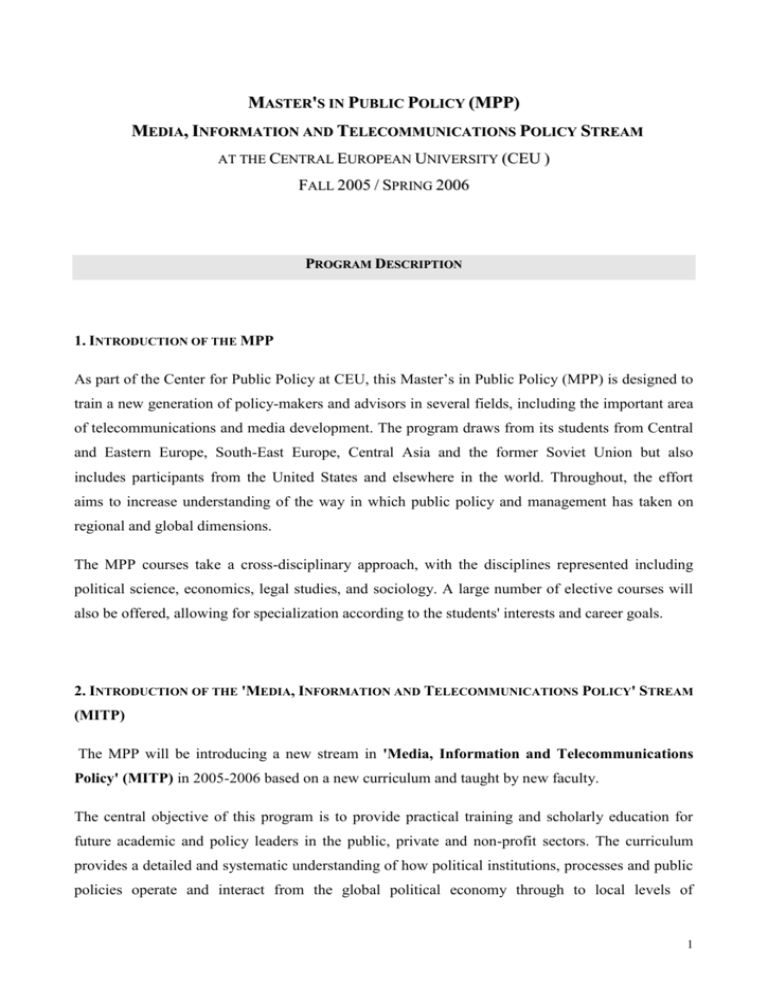
MASTER'S IN PUBLIC POLICY (MPP) MEDIA, INFORMATION AND TELECOMMUNICATIONS POLICY STREAM AT THE CENTRAL EUROPEAN UNIVERSITY (CEU ) FALL 2005 / SPRING 2006 PROGRAM DESCRIPTION 1. INTRODUCTION OF THE MPP As part of the Center for Public Policy at CEU, this Master’s in Public Policy (MPP) is designed to train a new generation of policy-makers and advisors in several fields, including the important area of telecommunications and media development. The program draws from its students from Central and Eastern Europe, South-East Europe, Central Asia and the former Soviet Union but also includes participants from the United States and elsewhere in the world. Throughout, the effort aims to increase understanding of the way in which public policy and management has taken on regional and global dimensions. The MPP courses take a cross-disciplinary approach, with the disciplines represented including political science, economics, legal studies, and sociology. A large number of elective courses will also be offered, allowing for specialization according to the students' interests and career goals. 2. INTRODUCTION OF THE 'MEDIA, INFORMATION AND TELECOMMUNICATIONS POLICY' STREAM (MITP) The MPP will be introducing a new stream in 'Media, Information and Telecommunications Policy' (MITP) in 2005-2006 based on a new curriculum and taught by new faculty. The central objective of this program is to provide practical training and scholarly education for future academic and policy leaders in the public, private and non-profit sectors. The curriculum provides a detailed and systematic understanding of how political institutions, processes and public policies operate and interact from the global political economy through to local levels of 1 governance. The program will provide students with a solid scholarly grounding in policy analysis as well as practical, issue-oriented knowledge. Website: http://www.ceu.hu/mpp 2.1. Program Structure The program begins in September with a taught element comprising five core courses and a range of elective courses. The curriculum combines an analysis of the economic, ethical, legal and political dimensions of policy-making with case studies that give students opportunities to pursue specific interests in more depth. Teaching is via lectures and seminars while assessment is through assessed essays and/or written examinations for each course. The second part is devoted to practical research and experience. All students are expected to complete a policy focused dissertation worth 6 credits. This will be assessed according to the thoroughness of the research, the clarity and logic of presentation, and the quality and originality of the analysis. For the majority of applicants, the final stage of the course will be as an intern at an international organization, government department or similarly relevant body. The aim is to provide students with the chance to experience the policy process at first hand. As part of the MITP Master’s program, students will have the opportunity to complete their internships with media and telecommunication organizations, governmental agencies or companies (for example MATAV, the Hungarian Telecommunications Company) Length of study: 12 months (from mid-September to early August), excluding a 2-month internship. 2.2. MITP Foundation Course The Foundation Course for Fall 2005 is a 4 unit offering: “The Shaping of Telecommunications and Media Law and Policy: A Survey of Fundamentals” This course is designed to provide an understanding of the institutional framework in which telecommunications, information policy and media decisions are made. The course begins with a study of the architecture of decision-making at the European level, and then turns to decision-making at the level of the nation–state. Attention will be paid to comparative issues in policy formulation and at the improvement of the regulatory process, especially in emerging democracies. There will be sections that examine the role of 2 industry, NGOS and others in this process. The course will have case studies in particular areas of decision-making (such as transitions to digital, regulating intellectual property, considering issues of concentration.) The course faculty will be supplemented by international experts in the field. The specialised foundation seminar will be offered in the fall semester. Students will be in an environment where there are two other specialisations. The degree specialisation in ‘International Public Policy’ involves courses that address: 'International Policy Practice', 'Global Governance and Public Policy' and 'Policy Making in the European Union'. The pathway on 'Decentralised Governance' enjoys support from the Fiscal Decentralisation Initiative for Central and Eastern Europe (FDI). Students opting for this pathway take additional courses in Public Finance, Macroeconomic Issues and Policies in Open Economies and Intergovernmental Fiscal Relations. APPLICATION INFORMATION 1. Entry requirements for all the MPP streams 1.1. General CEU requirements Information on how to apply is available on the website of the Admissions Office at http://www.ceu.hu/admissions_apply.html. 1.2. Specific MPP requirements The MPP is designed for those embarking on a career in policy work or those already embedded in a policy-making community. In addition to meeting the general CEU admissions requirements, applicants to the Master's Program in Public Policy should submit two samples of written work as well as a one or two page statement of purpose. The essays should outline the candidate's experience with the public sector and how the MPP can advance their understanding and practice of public policy, and demonstrate the candidate's analytical and argumentation skills in English. The statement of purpose should highlight any relevant academic and work experience and explain the candidate's reasons for applying and their career plans upon completion. The essays will be considered carefully by the MPP faculty admissions committee. More information about the MPP streams is available at: http://www.ceu.hu/mpp/teaching/ma.htm 3 4
